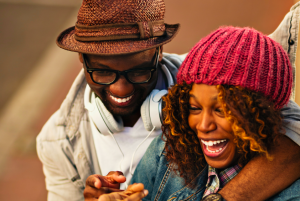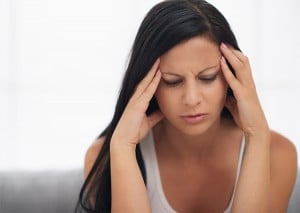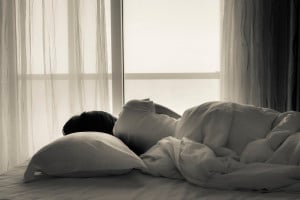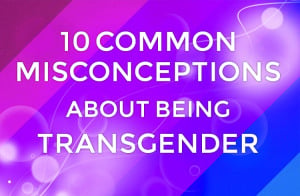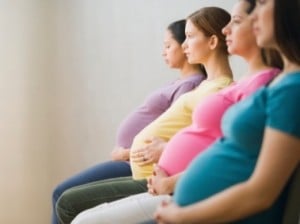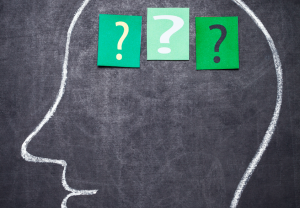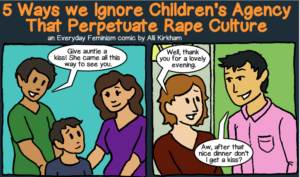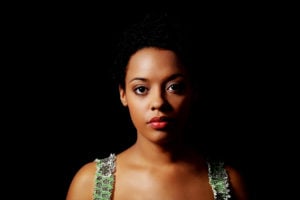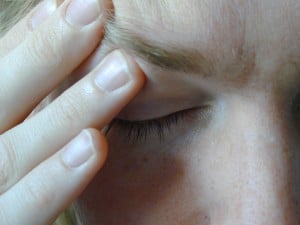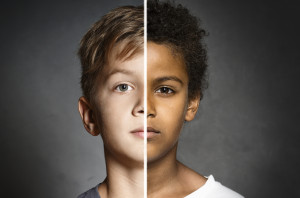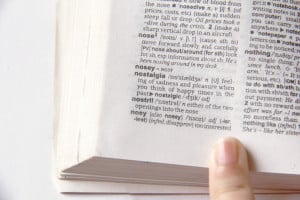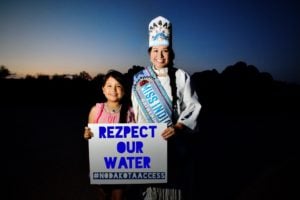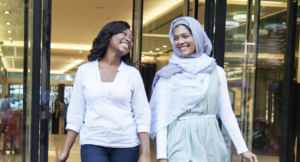It was mid-summer and I was on my way to a social justice and anti-oppression conference when I first learned of the Charleston church shooting.
Relatively new to community organizing, I’d been looking forward to networking with radical activists of color for many months. I couldn’t wait to bring new skills, connections, and ideas back to the Black liberation groups of which I was a part.
But as I sat in the airport watching images of slain Black faces blast over the TV monitors, I broke down. I covered my face with a blanket, and I wept. When I was finally settled in my hotel room, I slept for many hours.
As I moved through the conference space, I could feel the shattering hearts of other Black attendees, but I saw no official response to Charleston from the organizers.
Instead, instances of anti-Black violence permeated the conference experience: Black femme and trans attendees had racist and oppressive encounters at conference-sponsored venues and non-Black folks entered spaces that were designated for us and us only.
This conference, which was powerful in other ways, still showed me that the erasure of Black experience knows no bounds – it even happens within radical spaces and around folks with positive intentions.
And the most powerful, healing, and transformative spaces were those that Black presenters and organizers created, for our selves, in the midst of ongoing tragedy.
As a result, the conference, more than anything else, reminded me of how vital all-Black radical spaces are. And in that way, it was beautiful and liberating.
The fact remains, however, that all-Black spaces are still constantly questioned, attacked, and made invisible within mainstream society and in “anti-oppressive” spaces.
While white privilege allows large groups of white folks to gather together without question, Black folks can’t even hold public space without being views as suspicious or troublesome. We continue to be perceived as “violent” (even when no harm or destruction is present).
These conditions show how, more than ever, all Black spaces continue to be vital for Black survival, resistance, and healing. Here are some reasons why we need them.
1. Non-Black People Actively Oppose Us Having This Space
The very need to defend all-Black solidarity spaces shows us the extent and hypocrisy of anti-Black racism in the US and abroad.
When Black people create our own spaces, businesses, and gatherings, our behavior is often perceived as “reverse racism.“ We encounter frustrated exclamations of “If white people created a white-only group, we would be called racist!” or “Why isn’t there a white student union?!”
But it is vital to understand that these spaces are often in response to oppression – we need to be with each other and away from the abuse of racism and white supremacy.
And in reality, Black folks actually aren’t safe gathering and organizing – the Charleston massacre and the series of arsons against Black churches this past summer demonstrate that even our prayer and healing spaces remain targeted.
The reason Black communities and spaces are often attacked usually isn’t because white and non-Black folks “cant” join in.
The unspoken truth behind the backlash is that Black folks are directly challenging white supremacy, which seeks to divide and destroy us, not see us unified.
2. We Need an Escape from Everyday Racial Oppression
Many of us who are Black are aware of our own Blackness – of how the world perceives us as Black people. Some of us come into this awareness through a strong sense of pride and identity, but a lot of us are reminded of our Blackness through instances of racism.
For me, there is a beauty in Blackness and all of its diversity, but there is also shared pain. We’re suffering from the buildup of dozens of daily microaggressions that challenge our worth, intelligence, and humanity.
The constant and thoughtless circulation of images of Black death remind us again and again that our lives mean nothing to the state. Many of us are in jobs and institutions where we are not allowed time to grieve or show up as our authentic selves.
This climate – where the dominant and historical narrative is anti-Blackness in many forms – is harmful. And we as Black people need to be separated from that harm.
We need to be in spaces where the constant threat of racism and violence is lessened, and where there is some common, shared understanding.
3. We Need Our Own Space – Yes, Even From Other People of Color and White Allies
Occasionally, in response to “POC-only” or “Black-only” events and spaces, non-Black folks will express confusion or frustration.
Many well-meaning allies want to show support and understand the issues that are impacting Black people. In instances that call for solidarity and building a wider movement, this support is increasingly important.
But when explicitly asked to “move back” as white or non-Black people, the best way to support us is to respect that demand.
There is a set of shared experiences within Blackness that are not shared by all people of color. There’s a difference between having an understanding of racism in America and living that experience.
4. We Need to Address Issues Within Our Communities
One (of the many) ways I’ve heard white folks in particular dismiss #BlackLivesMatter is with the old, worn out pushback, “If Black lives matter so much, why aren’t you addressing the violence in your own community?”
Not only is this argument knee-deep in privilege and a refusal to accept how anti-Black racism is a product of white supremacy, it ignores the work that has been and will continue be done in all-Black spaces. We know we have our work to do.
And we know that, even in all-Black spaces, not all of us are invested in liberation and healing.
Queer and trans Black folks are often left out of our fight for liberation, and/or experience blatant transphobia and violence within our Black community. Poor, homeless, less academically educated, and incarcerated Black folks are invisiblized by respectability politics.
And even as this movement (and others before it) has been led by Black women and trans folks, we still have to shout over male and masculine voices.
Many of us have digested the anti-Black, sexist, transphobic, heterosexist, classist, ableist, and otherwise oppressive values of mainstream society – and we need to be able to talk about how to address how we harm, as well as heal each other.
We need our own space to talk about these issues with one another for our own healing, whether or not white supremacy acknowledges that the work is happening.
5. We Need to Heal, Uplift, and Love
In the aftermath of the police murder of Freddie Gray, I remember lying in bed, watching my newsfeed, in tears. I couldn’t sleep, and I couldn’t stop crying, either. I was frozen in hopelessness, despair, rage, and numbness.
Like many other Black folks, I’d felt these emotions a hundred times before. And even though I knew many of my Black friends and family felt similarly, that I was not alone, I was disturbed to the point I couldn’t rest. But, on this occasion, I had just begun dating another Black organizer, so I took a step towards courage and connection and reached out. She welcomed me over.
I dragged myself up and drove over to her house in the middle of the night. As I made my way up the stairs and into her room, she had no complaints that I had woken her up. She held me, and I felt such an overwhelming warmth of love and presence that I felt like crying all over again.
I knew this feeling before, too, as many Black folks have: validation, openness, love, care.
I have felt it when my auntie lifts up my chin and tells me to be proud, stand up straight; when I dream of my ancestors who prayed for their children and grandchildren; when I see our people creating new ways to survive and thrive; when we create our own families and open our homes to folks in need.
In that moment, she could not take away my pain or our shared pain, but she gave me space to feel it. I knew she felt it. And I fell asleep almost immediately.
As Black people, it’s true that the world harms us, oppresses us, and continues to tell us that we do not matter. It’s also true that we can inflict similar harm and violence upon one another – that we internalize this hatred.
But a truth that we mustn’t overlook is that we know what ails us, and when we come together, we create tools that heal us. We are some of our most powerful reminders that our lives do matter, do hold value and worth and complexity and beauty. We have incredible power to heal and love ourselves even when society refuses to.
***
With so much of society founded on and profiting from anti-Black racism and violence, spaces for Black folks to grieve, organize, and heal remain crucial to our survival.
We hold space not with the intent of excluding others, but rather because we have been excluded. Calls for solidarity – where people from all races and creeds have responded to a growing movement – remain important, but so do spaces intentionally built for and by Black folks.
[do_widget id=’text-101′]
Michal “MJ” Jones is a Contributing Writer for Everyday Feminism and is an awkward, Black, non-binary queer educator, activist, and musician writing to you from Oakland, CA. They earned their BA in Sociology from Sonoma State University, and went on to earn an MA in Student Development Administration from Seattle University and remain committed to improving access and retention to higher education. Listen to their music or read more of their work. Follow them on Twitter @JustSayMJ and read their Everyday Feminism articles here.
Search our 3000+ articles!
Read our articles about:
Our online racial justice training
Used by hundreds of universities, non-profits, and businesses.
Click to learn more


